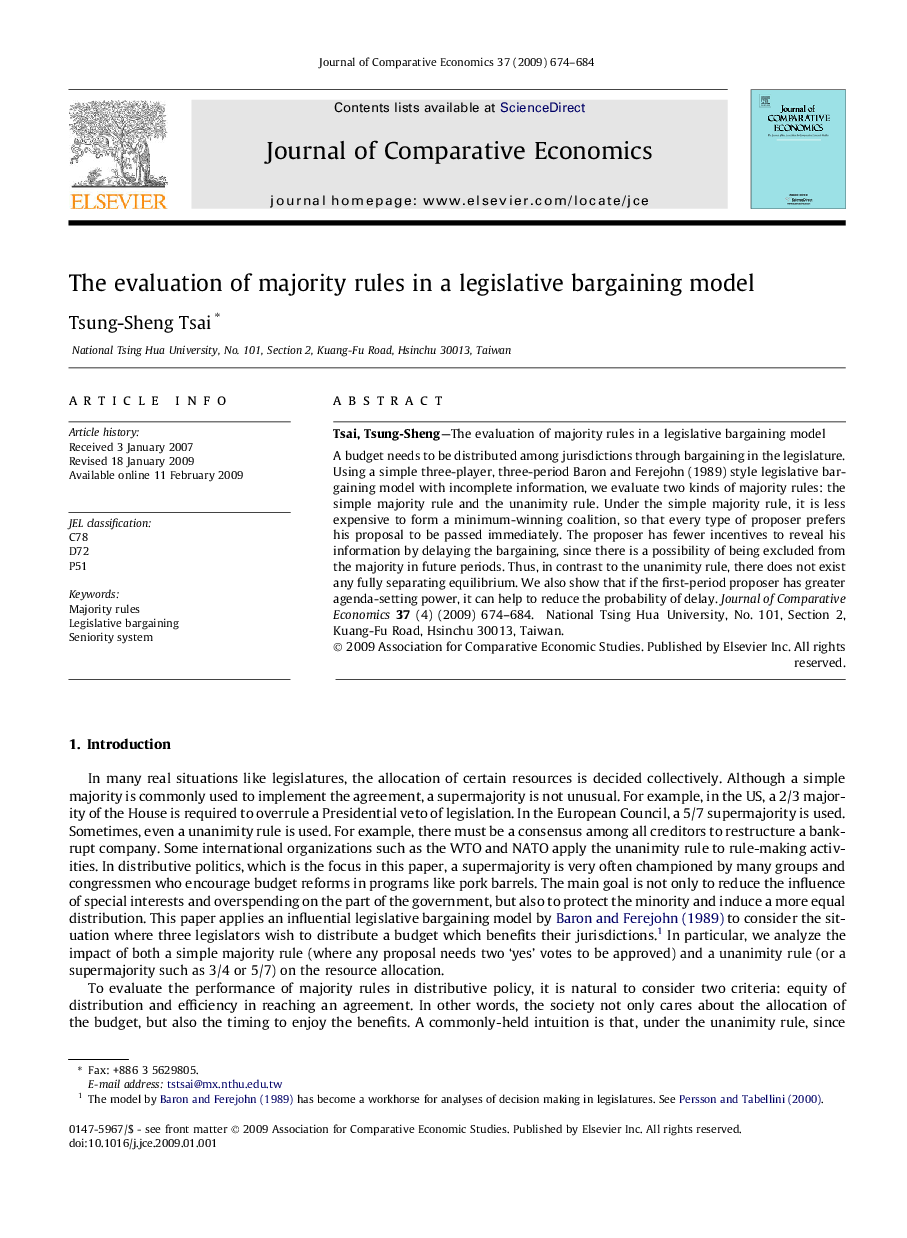| Article ID | Journal | Published Year | Pages | File Type |
|---|---|---|---|---|
| 5092716 | Journal of Comparative Economics | 2009 | 11 Pages |
Abstract
A budget needs to be distributed among jurisdictions through bargaining in the legislature. Using a simple three-player, three-period Baron and Ferejohn [Baron, D.P., Ferejohn, J.A., 1989. Bargaining in legislatures. American Political Science Review 83 (4), 1181-1206] style legislative bargaining model with incomplete information, we evaluate two kinds of majority rules: the simple majority rule and the unanimity rule. Under the simple majority rule, it is less expensive to form a minimum-winning coalition, so that every type of proposer prefers his proposal to be passed immediately. The proposer has fewer incentives to reveal his information by delaying the bargaining, since there is a possibility of being excluded from the majority in future periods. Thus, in contrast to the unanimity rule, there does not exist any fully separating equilibrium. We also show that if the first-period proposer has greater agenda-setting power, it can help to reduce the probability of delay.
Related Topics
Social Sciences and Humanities
Economics, Econometrics and Finance
Economics and Econometrics
Authors
Tsung-Sheng Tsai,
